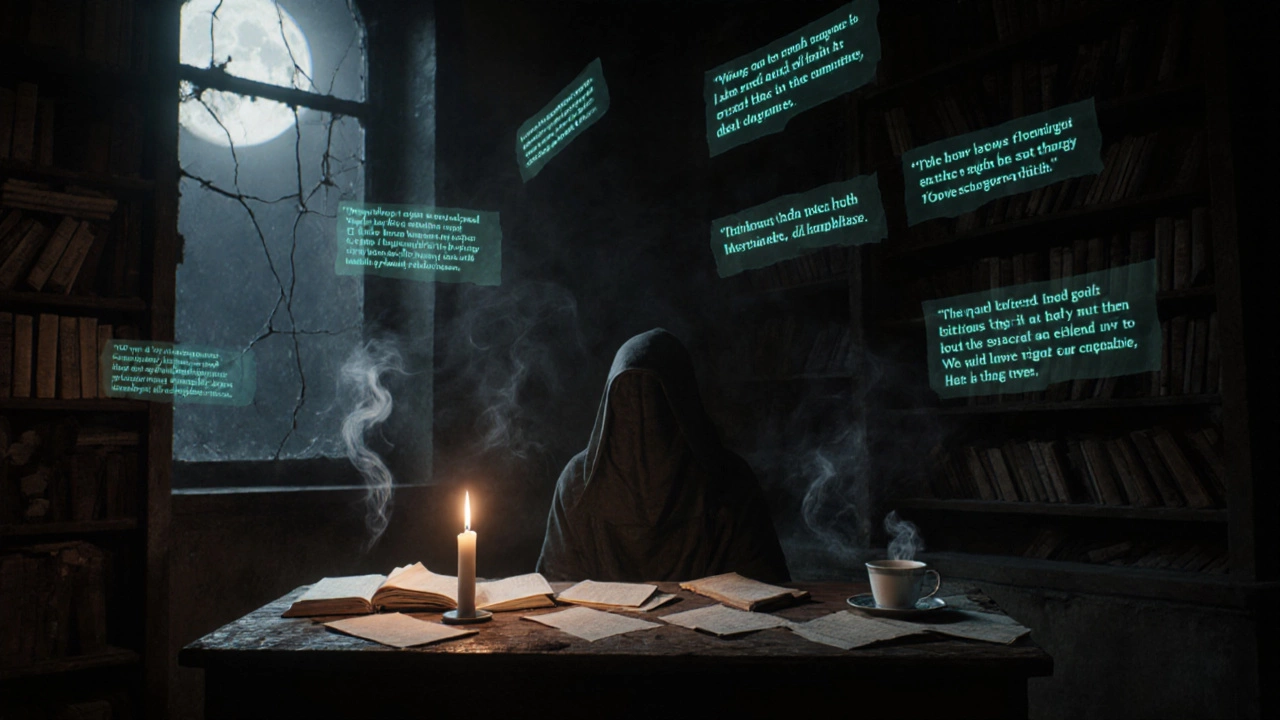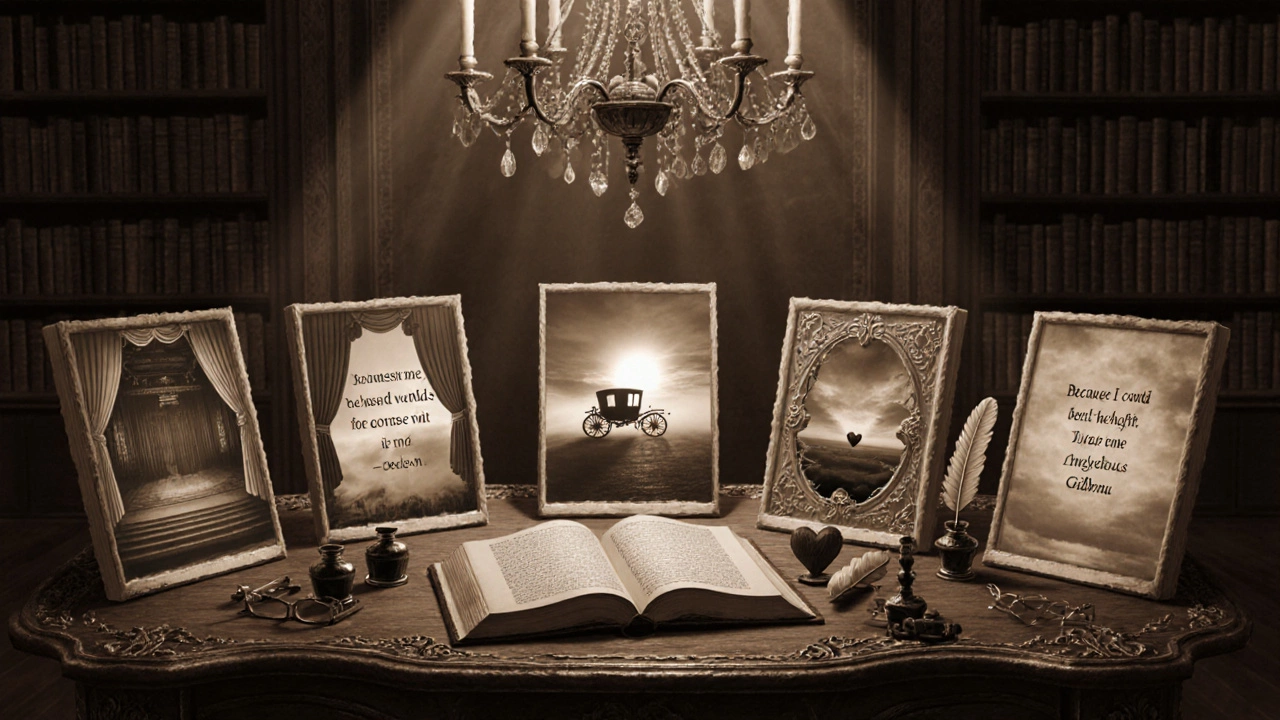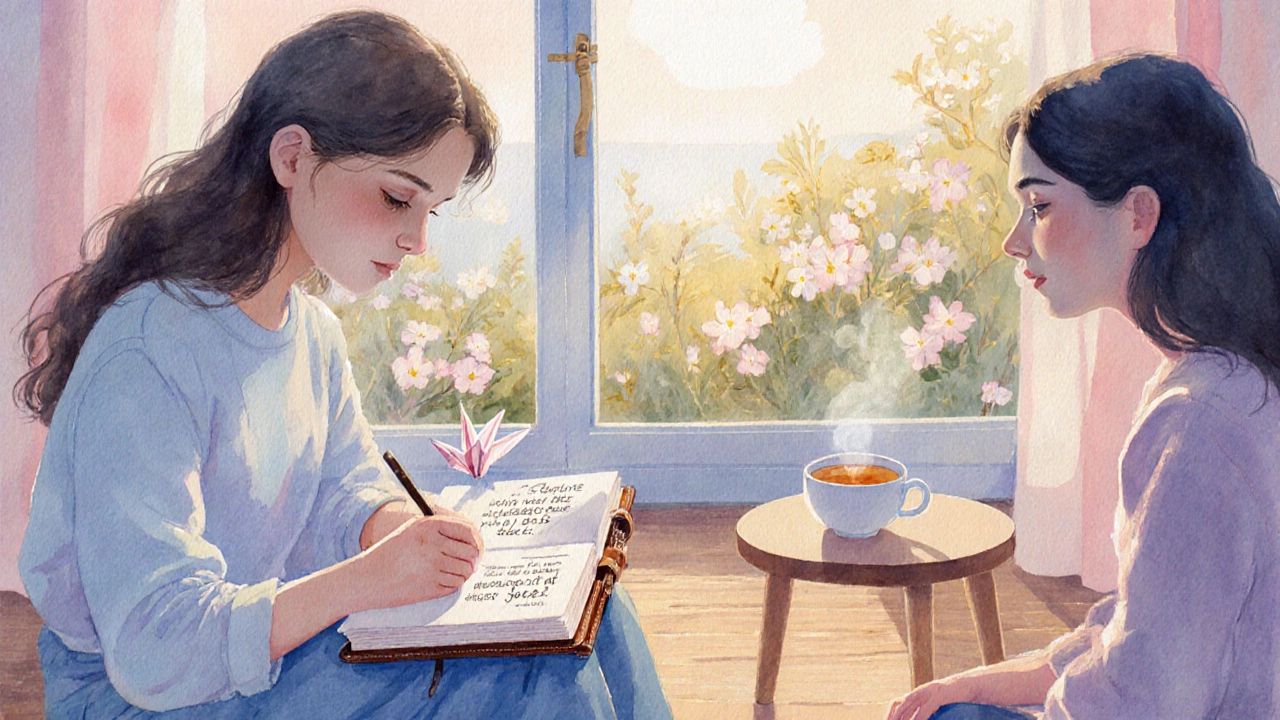World’s Saddest Quotes - Heart‑Wrenching Sayings That Touch the Soul

Sad Quote Evaluator
Create Your Own Heart-Wrenching Quote
Enter a quote below to analyze its emotional impact using literary criteria from the article. The tool evaluates concrete imagery, emotional honesty, and universal themes.
Analysis Results
Does your quote use vivid, specific details rather than abstract concepts?
Does it express genuine emotion without being clichéd?
Does it connect to common human experiences like loss or heartbreak?
When you search for world’s saddest quotes a curated list of the most heartbreaking sayings from literature, film, and real life, you’re looking for words that echo your deepest sorrow. These lines have survived centuries because they capture grief in a way that feels both personal and universal.
Why Some Quotes Cut Deeper Than Others
Sadness an emotion characterized by feelings of loss, disappointment, and helplessness isn’t just a mood; it’s a lens that sharpens perception. When a writer phrases loss in a simple, vivid image, the brain registers it as a personal memory. The saddest quotes often share three traits: concrete imagery, emotional honesty, and a timeless theme such as love, death, or betrayal.
Classic Literary Saddest Quotes
Literature offers a treasure trove of mournful lines. Below are five of the most resonant, each paired with its author and the era that birthed it.
| Quote | Author | Year | Core Theme |
|---|---|---|---|
| "All the world’s a stage, and all the men and women merely players; they have their exits and their entrances, and one man in his time plays many parts." | William Shakespeare English playwright (1564‑1616) renowned for tragedies | 1600 | Life’s fleeting nature |
| "Because I could not stop for Death - He kindly stopped for me - The carriage held but just ourselves - And Immortality." | Emily Dickinson 19th‑century American poet (1830‑1886) famed for short, intense verses | 1863 | Mortality |
| "Even the darkest night will end and the sun will rise." | Victor Hugo French novelist (1802‑1885) known for profound social commentary | 1870 | Hope amid sorrow |
| "I have lost my best friend, and my heart remains a broken mirror." | Maya Angelou American poet and civil‑rights activist (1928‑2014) | 1993 | Heartbreak |
| "When you are sorrowful, remember that the world itself is a sigh." | Khalil Gibran Lebanese‑American writer (1883‑1931) famed for poetic prose | 1923 | Existential melancholy |
Each line condenses a life‑changing moment into a single sentence, making the feeling instantly recognizable. The authors’ reputations add weight, but the raw sentiment is what endures.

Modern Media’s Saddest Quotes
Film and television have given us new sources of sorrow. A single scene can turn a quote into a cultural meme of grief. Consider these recent gems:
- "I’m not the guy who wants to die, I’m the guy who wants to keep living through the loss of someone I love." - Joaquin Phoenix actor who played the Joker in 2019 (movie "Joker")
- "You have to leave the past behind. The only way to move forward is to stop looking back at the place where it all went wrong." - Carrie Bradshaw fictional character from "Sex and the City" series
- "All the love I have for you is gone, but the debt of my grief remains." - John Green author of "The Fault in Our Stars" (2012)
These contemporary voices continue the tradition of turning pain into poetry, showing that sorrow is a universal language across centuries.
How to Use Saddest Quotes for Healing
Reading a heart‑breaking line can feel like a brief reunion with grief, but it also offers a path to relief. Psychologists note three practical ways to incorporate such quotes into self‑care:
- Reflection: Write the quote in a journal and note what personal memory it triggers. This externalizes the feeling.
- Perspective: Compare your own loss with the broader human experience the quote implies. Realizing you’re not alone can soften the sting.
- Expression: Share the quote with a trusted friend or on a social platform. Verbalizing the sorrow often reduces its intensity.
These steps turn passive reading into active processing, allowing the emotional weight to dissolve gradually.

Common Pitfalls When Collecting Saddest Quotes
Enthusiasts sometimes fall into traps that diminish the power of these lines:
- Over‑quotation: Filling a wall with endless sad sayings can numb you rather than heal.
- Misattribution: Crediting a quote to the wrong author erodes credibility and can spread misinformation. Always verify with reputable sources.
- Relying on clichés: Generic phrases (“Life is painful”) lack the specificity that makes a quote resonate.
By staying selective, checking sources, and favoring unique imagery, you preserve the raw impact of each phrase.
Creating Your Own Saddest Quote - A Mini‑Guide
If you feel compelled to write a line that captures your own grief, follow this short framework:
- Choose a concrete image. Instead of “I feel sad,” picture “the empty chair by the window.”
- Pair the image with a universal theme. Connect the chair to loss, time, or memory.
- Keep it brief. Aim for 12‑20 words to retain punch.
- Test the emotional response. Read it aloud; if it makes you pause, you’ve succeeded.
Applying this method can turn personal pain into art that others might find comfort in.
Frequently Asked Questions
What makes a quote ‘saddest’?
A saddest quote usually combines vivid, concrete imagery with a universal feeling of loss, and it’s concise enough to linger in the mind.
Are there any cultural differences in what is considered a sad quote?
Yes. Eastern poetry often uses nature metaphors; Western works may focus on individual tragedy. Understanding the cultural backdrop enriches the interpretation.
How can I verify the author of a quote?
Check reputable databases such as the Oxford Dictionary of Quotations, original publications, or academic anthologies. Avoid relying solely on social‑media screenshots.
Can sad quotes be used in motivational contexts?
Absolutely. Recognizing pain can be the first step toward growth. Pairing a sad quote with an uplifting follow‑up creates a balanced narrative.
What are the best ways to share saddest quotes responsibly?
Credit the original author, provide context if the quote deals with sensitive topics, and consider the audience’s emotional state before posting.